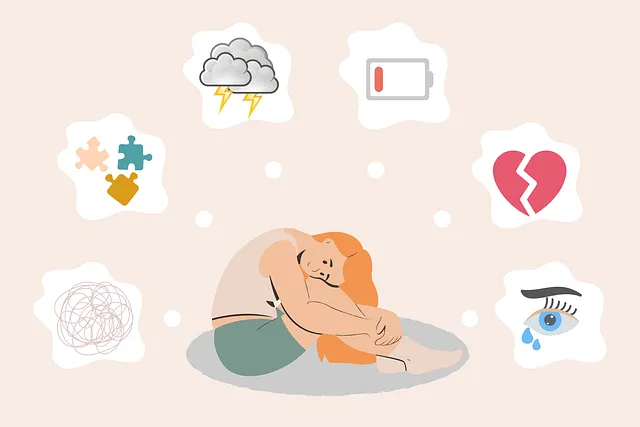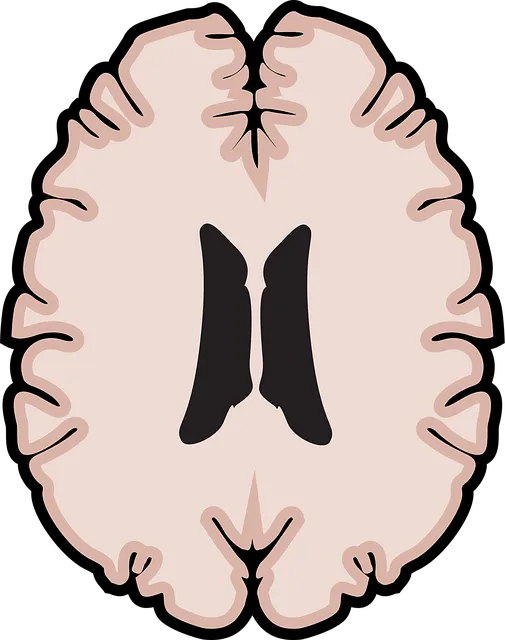Longmont Kaiser Permanente is transforming mental health care through an innovative RFM (Resilience, Flexibility, Mastery) model, integrating concepts like mindfulness and cognitive behavioral therapy. This holistic approach, led by dedicated mental health providers, equips individuals with coping mechanisms for stress and traumatic events, enhancing emotional well-being. By focusing on resilience building, the program reduces provider burnout and improves patient outcomes, revolutionizing mental healthcare accessibility and quality within the community.
“Unveiling a powerful approach to enhancing mental well-being, this article explores the implementation of RFM (Resilience, Flexibility, and Mastery) exercises within healthcare settings. Drawing from the success story of Longmont Kaiser Permanente, we delve into how their tailored resilience-building program positively impacts mental health care. By integrating evidence-based practices, this model empowers mental health providers to equip individuals with essential coping mechanisms. Through a comprehensive evaluation process, we examine the effectiveness of RFM in fostering resilience and improving patient outcomes at Longmont Kaiser Permanente.”
- Understanding RFM and Its Impact on Mental Health Care
- Longmont Kaiser Permanente's Approach to Resilience Building
- Implementing Effective Exercises for Mental Well-being
- Measuring Success: Evaluating the RFM Model at Kaiser Permanente
Understanding RFM and Its Impact on Mental Health Care

At Longmont Kaiser Permanente, mental health providers are increasingly turning to RFM (Resilience, Flexibility, and Mastery) models as a cornerstone in their patient care approach. This framework recognizes that building resilience is not just beneficial but essential for navigating life’s challenges, especially in the face of chronic stress or traumatic events. By integrating concepts like these into therapy sessions, mental health professionals can empower individuals to develop coping mechanisms that foster emotional well-being and enhance their ability to manage mental health conditions effectively.
The impact of such an approach extends beyond individual patients. Implementing RFM exercises contributes to a holistic improvement in the mental health care system. It supports the prevention of burnout among providers, who are often exposed to intense emotional demands, thereby ensuring long-term sustainability in patient care. Moreover, effective risk management planning for mental health professionals can be optimized through these strategies, allowing them to anticipate and mitigate potential risks associated with high-stress environments, such as Trauma Support Services.
Longmont Kaiser Permanente's Approach to Resilience Building

Longmont Kaiser Permanente takes a holistic approach to resilience building, recognizing that mental health is integral to overall well-being. Their dedicated team of mental health providers offers a range of services tailored to individual needs. By incorporating techniques like mindfulness meditation and cognitive behavioral therapy (CBT), they empower individuals to manage their mood effectively and cultivate mental wellness. This approach not only addresses existing challenges but also equips people with the tools for long-term self-care routine development, fostering resilience in the face of life’s stressors.
The organization’s focus on resilience building exercises is a game-changer in promoting mental health within the community. Through innovative programs and accessible resources, Longmont Kaiser Permanente ensures that individuals have the support needed to navigate life’s challenges with greater ease, ultimately enhancing their overall quality of life.
Implementing Effective Exercises for Mental Well-being

Implementing effective exercises for mental well-being is a crucial step in fostering resilience, particularly within communities like Longmont Kaiser Permanente where mental health providers play a vital role. These exercises go beyond traditional therapy sessions, offering practical tools to enhance individuals’ daily lives and overall mental resilience. By incorporating techniques such as conflict resolution training and inner strength development, residents can build confidence and navigate challenges with greater ease.
Longmont Kaiser Permanente’s mental health providers can guide individuals through tailored programs designed to strengthen their minds and emotional coping mechanisms. From mindfulness practices to cognitive behavioral therapy-inspired exercises, these initiatives empower folks to manage stress, improve self-awareness, and develop effective conflict resolution skills. Such proactive measures not only benefit individual well-being but also contribute to a more resilient community where residents are better equipped to handle life’s complexities.
Measuring Success: Evaluating the RFM Model at Kaiser Permanente

At Longmont Kaiser Permanente, the implementation of the RFM (Resilience, Flexibility, and Mindfulness) model has been a game-changer in enhancing mental health services. The success of this initiative is evident through the positive impact it has had on both patients and mental health providers. By incorporating resilience-building exercises into their practice, Kaiser Permanente’s mental health team has effectively supported individuals in managing stress and improving overall mood. This approach not only helps patients develop effective coping mechanisms but also fosters a sense of empowerment, enabling them to navigate life’s challenges with greater ease.
The RFM model’s effectiveness is measured through rigorous evaluation processes that include patient feedback and outcome assessments. These evaluations reveal significant improvements in burnout prevention among mental health providers, allowing for more sustained and compassionate care. Furthermore, the program’s design focuses on Mental Health Education, empowering patients to take an active role in their well-being. This holistic approach has created a vibrant and supportive environment within Longmont Kaiser Permanente, reflecting the organization’s commitment to revolutionizing mental healthcare delivery.
Longmont Kaiser Permanente’s innovative approach to resilience building through RFM exercises demonstrates the potential for mental health providers to enhance patient well-being. By implementing these strategies, mental health care can become more proactive and personalized, addressing not just symptoms but also the underlying factors that contribute to mental health challenges. This model offers a promising path forward, showing that by equipping individuals with resilience-building tools, we can empower them to navigate life’s difficulties with greater ease.






